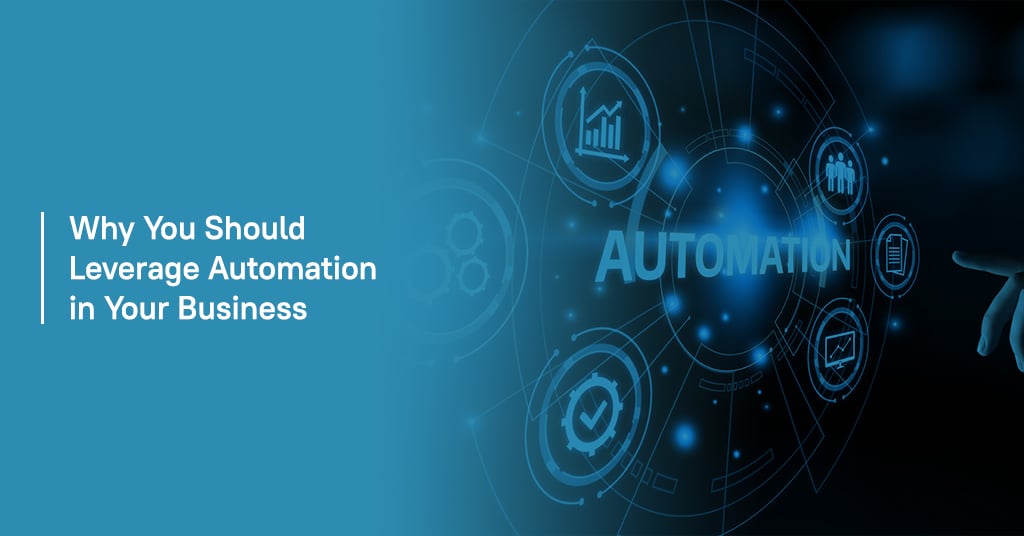The pandemic has created waves of uncertainty and change for business of all sizes. Businesses that have leveraged digital capabilities are better positioned to weather the competing demands in today’s challenging times. The Asia-Pacific Intelligent Automation Market Report 2020 clearly states that the need to improve business efficiency and employee engagement through value-added jobs is driving growth opportunities. Adaptability and speed of digital technology transformation has become more critical for businesses than ever before.
Leveraging the power of automation allows businesses to increase efficiencies, proactively meet market conditions, and achieve and sustain a competitive advantage. Businesses can choose to automate selected or all operations at a time, decreasing errors and expenses and increasing the bottom line. With the right partner and advice, businesses have the ability to automate in the stages appropriate for their business, thereby reducing workload. This approach allows small and mid-sized businesses to focus on revenue-generating activities, while also keeping the employees engaged in learning.
Automation can help you gain competitive advantage including:
Streamlined Business Processes
Business transactions include communication exchanges, agreements, payment exchanges, and records of transactions. Automation resolves the challenges presented by human error, especially in functions where record-keeping and communication is critical. The business process may include payroll management, insurance coverage, tax remittance, and human resource services such as recruiting, onboarding, and training. Once automation is in place, software systems can be effectively integrated to manage the records of the business. In addition, the security of cloud storage and encryption capabilities protect digital records by preserving data security and integrity of information. This eliminates the vulnerability and risk of paper records.
Efficient Business Operations
Customized software can automate processes specific to your business, reduce human error and increase time efficiency. With the use of artificial intelligence (AI), operations become faster and error-free. Automation builds efficiency and quality when applied across time- and attention-intensive operations such as bookkeeping, data collection, data entry, data processing, and other industry-specific operations that consistently deal with high volumes of data. This increases productivity and ultimately improves the bottom line of a business. According to McKinsey estimates, automation can increase the annual productivity of the global economy by up to 1.4%.
During the current pandemic, businesses experienced an unprecedented workforce disruption. This further highlights the need for automated solutions to mitigate the impact of such disruptions in the system, streamline human resource capacity, and rationalize IT workforce management.
Better Employee Engagement
Automation helps businesses stay competitive and build connected experiences. With automation, team members can focus on innovation and enhance their skill sets. According to a McKinsey report, nearly half of the activities carried out by workers can be automated. These include physical activities in highly predictable and structured environments. Work requirements are different with automation; they demand training and skill acquisition along with increased adaptability. Training of mid-career and newer generations of employees will become an imperative.
Enhanced Customer Satisfaction
Automation makes your services easier, faster, and more efficient. As the accuracy, consistency, and quality of products and services offered by the business improve, satisfaction levels also increase. This increases customer reliability on your business, and their trust and loyalty.
From Sustainability to Long-Term Growth
Though enterprises are adopting automation to achieve heightened business efficiency and employee engagement, according to a Yahoo report, they still hesitate due to factors such as limited budgets, weak digital transformation strategy, lack of technical feasibility, and inadequate skill sets of employees. Businesses need to accept that across industries adaptability, efficiency, and resiliency are the pillars of business sustainability that ensure long term growth. Automation is a necessity for businesses to succeed long term through agile and scalable operations.
For over 15 years, Analytix has advised thousands of small and mid-sized businesses on how to build efficiencies in their operational models and positively impact profitability. We understand that competing demands stretch capabilities and focus.
One of our clients recently launched a cutting edge, contemporary restaurant. To manage operations in this restaurant, they have implemented multiple applications including back-end kitchen operations, inventory, kiosk, payroll, and POS. Because these applications work independently, it has become difficult to understand the operations of the business from an analytical standpoint. Analytix provided integration, automation, and analytics services to this client so that data from all applications could be obtained through automation and stored in a secure database. From there, we provided a PowerBI dashboard with full analytics of the business, enabling the client to fully understand their business efficiencies, successes, and areas of improvement. This enabled better and more sustainable planning of operations. Analytix offers scalable, customized solutions to fit the unique needs of your business. If you would like to learn more about our strategic services and solutions, you can reach us at sales@analytix.com or 781.503.9003.
